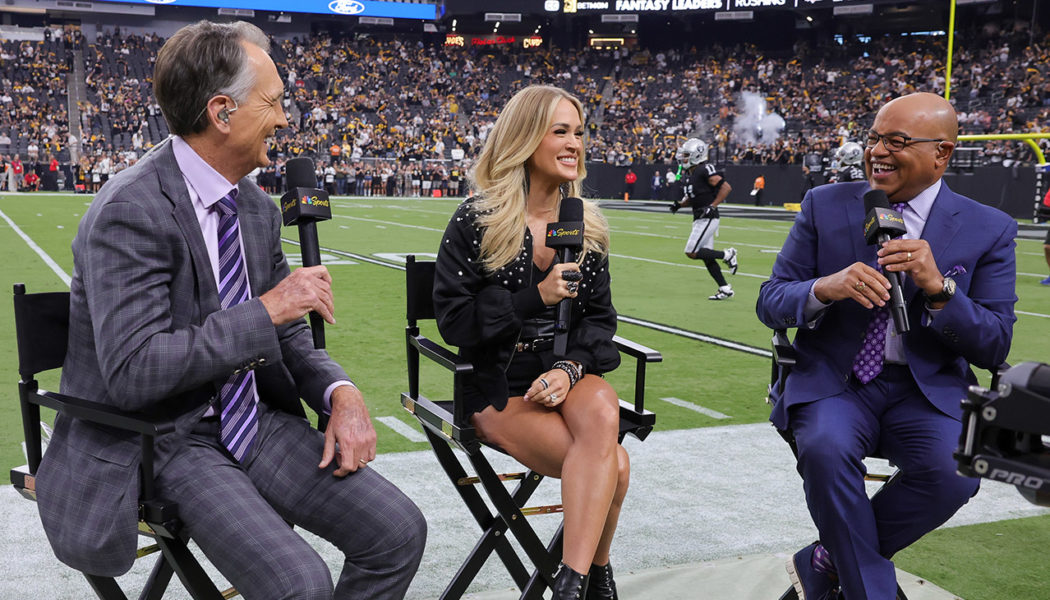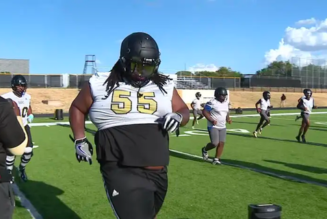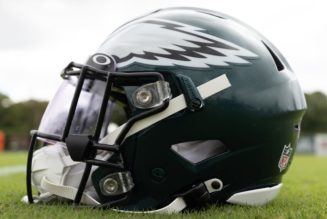To understand the connection between sports and streaming video, consider this: Amazon’s $1 billion per year deal to stream Thursday Night Football is literally changing U.S. internet habits. Comcast president Mike Cavanagh, speaking Dec. 4 at a UBS conference, said Amazon’s TNF game “comprises roughly 25 percent of all internet traffic on Thursday nights” and that it single-handedly “moved peak data usage on our broadband network from Sunday night to Thursday night.” And Comcast, with more than 32 million broadband internet subscribers, knows where users are spending that valuable bandwidth.
It’s a cliché to say that sports is the glue holding together what’s left of the pay TV bundle, but while the bundle isn’t dead yet, every media company with sports rights has decided to go all in on streaming. Or, as analyst Brad Adgate notes, this is the year that leagues and broadcasters are starting to say, “Hey, you know, my audience is over there.”
Disney CEO Bob Iger has said the company is transitioning ESPN from linear TV’s biggest booster and “turning it into the preeminent digital sports platform.” ESPN+ has 26 million subscribers (albeit at $10.99 a month, a price far lower than what’s expected for the ESPN “flagship”), and Hulu simulcasts many NHL games as that league has sought to leverage the Disney-owned service for access.
At Warner Bros. Discovery, the Max streaming platform rolled out live streaming sports — including the MLB playoffs and NBA and NHL games — in October. And at Paramount+ and NBCUniversal’s Peacock, streaming sports are among the biggest drivers of new subscribers.
“Sports is a core part of our value proposition. So that’s how we think about it,” says Peacock president Kelly Campbell. For one weekend in September, Campbell notes that Peacock hosted 51 live sporting events (including as many as seven concurrently), including games from the NFL, Premier League and Big Ten.

(L-R) NBC Sunday Night Football commentator Cris Collinsworth, artist Carrie Underwood and NBC Sunday Night Football announcer Mike Tirico talk before a game in September 24, 2023.
Ethan Miller/Getty Images
“For Peacock, sports is a very valuable acquisition hook,” Campbell says. “It brings people in, and when you look at the breadth of type of sports we offer, I think that is where we start to really look at consumer preference, just like we do with entertainment content.”
Paramount Global, which has 63 million global streaming subscribers, has cited its NFL games as key drivers of Paramount+ subscriptions, and Amazon says that TNF has been a catalyst for both prime subscriptions and advertising growth.
Beyond subscriptions and advertising, the streaming push is also about relevance. When every household paid for cable or satellite TV, sports were ubiquitous, but for consumers under 40, cable is just not a popular option.
“What we’ve seen increasingly in this sort of fragmenting television world is that: particularly generally younger customer segments are coming out of pay television and wanting to have more choice,” Warner Bros. Discovery streaming and games chairman JB Perrette told The Hollywood Reporter in an interview ahead of the Max sports launch in October, noting, “Older customers generally are staying a lot with pay television — it’s a great value. And so we’re trying to sort of re-aggregate that reach and that audience, but in a way that ultimately tries to keep economic parity and models such that we’re not disadvantaging one or advantaging another.”
Balancing the new and the old means walking a tightrope. Disney’s September carriage deal with Charter Communications will make any eventual ESPN streaming service available with cable packages, and WBD is looking to work with cable providers on its Max B/R Sports tier, too.
That dynamic is likely to be a focal point of the forthcoming sports streaming wars. Are sports a critical piece of the value proposition, as they are for Peacock or Paramount+? Or are they a premium option worthy of an extra fee?
“In the early days, people were coming to us for the game, right? They’re doing a Google search for ‘where can I watch the Chiefs-Rams game,’ and then, okay, they’ll sign up for peacock because we have it,” Campbell says. “It’s true that still happens, but now we’re starting to establish that Peacock is the go-to place for sports. And that’s why our marketing message out there right now leans into the breadth and depth of the sports that we offer. To me, that’s a really important step.”
Max, for example, will start charging $10 a month for its B/R Sports tier early next year, ahead of the March Madness basketball tournament.
“Everywhere else in the world other than the United States, sports is sold separately,” Perrette said. “And part of the reason the pay TV bundle is in the state it’s in is frankly because too much expensive sports got jammed into it at the basic entertainment tier, making it just too expensive for people who want entertainment and don’t necessarily want sports.”
But beyond the strategic imperatives, there is still the technical challenge. In a cover story interview with THR this summer, NFL commissioner Roger Goodell said that his league was reluctant to sell exclusive games to streamers until it was certain there wouldn’t be any glitches. Amazon has proved to be reliable, but going forward, everyone else will be put to the test.
“Every internet service provider, fixed wireless in particular, will really be put to the test as this transition of sports to streaming continues, especially come January, when for the first time ever, an NFL playoff game will be aired exclusively on a streaming platform which will be our very own Peacock,” Cavanagh said at the UBS conference.
Indeed, Peacock has pressure to demonstrate Jan. 13 that it can handle the first NFL postseason game to be streamed exclusively. Patrick Miceli, EVP and CTO of direct-to-consumer and Peacock for NBCUniversal says they have been preparing for the event for months, stress-testing the system to make sure it works.
“The exclusive NFL games have the potential to draw Peacock’s largest audience ever, with unprecedented concurrent streams in the U.S. sports market,” Miceli says. “We began preparing from a technology standpoint the minute the deal was signed last spring. We focused our effort on non-functional testing at scale to manage the load, reliability of our platform and operations for the event.”
Meanwhile, there’s the big wildcard: Netflix. The streaming behemoth does not hold any sports rights (even YouTube has NFL Sunday Ticket). Instead, its sports strategy has consisted of two prongs: documentaries and docuseries like Drive to Survive, Full Swing and Quarterback; and live events that it puts on itself. The first of the latter was a golf match pairing Formula 1 drivers with PGA Tour pros. The next one, set for March in Las Vegas, is a tennis exhibition, with the main event a showdown between Rafael Nadal and Carlos Alcaraz. It may not be the NFL, but because Netflix controls every aspect of it, the company can secure sponsorship integrations and run the production as it sees fit.
These moves add up to a combustible moment: Sports is on the cusp of going all in on streaming, but the business models are still being built.
“I don’t know if a leap of faith is overstating it,” Peacock chief Campbell says of the investment in streaming live games. “But it is definitely a sign of belief in what our team is capable of.”
“I’m very focused on these NFL games right now — it’s a big investment financially and it’s a big investment as a team. But it’s also a big investment in the brand,” she adds. “I think it shows the consumer that we’re out there taking big swings and trying to get the best content and the biggest live events on peacock, and then it shows the leagues, the creative community, the business industry, that we’re here and that we’re investing in the long term.”
***
Scoreboard: Who Has the Streaming Rights
The NBA is on Max and the MLS is on Apple, while the NFL, PGA and MLB aren’t exclusive

Tim Heitman/Getty Images
Max – NBA, MLB, NHL, March Madness, NASCAR
Paramount+ – NFL, UEFA Champions League, UEFA Europa, Serie A, NWSL
ESPN+ – NFL, MLB, NHL, UFC, College Football, F1, Bundesliga, PGA Tour, La Liga
Peacock – NFL, MLB, WWE, Olympics, Premier League, NASCAR, French Open, College Football and Basketball, PGA Tour
Prime Video – NFL, Overtime Elite, NASCAR
Apple TV+ – MLB, MLS
A version of this story appeared in the Dec. 15 issue of The Hollywood Reporter magazine. Click here to subscribe.
Services Marketplace – Listings, Bookings & Reviews









